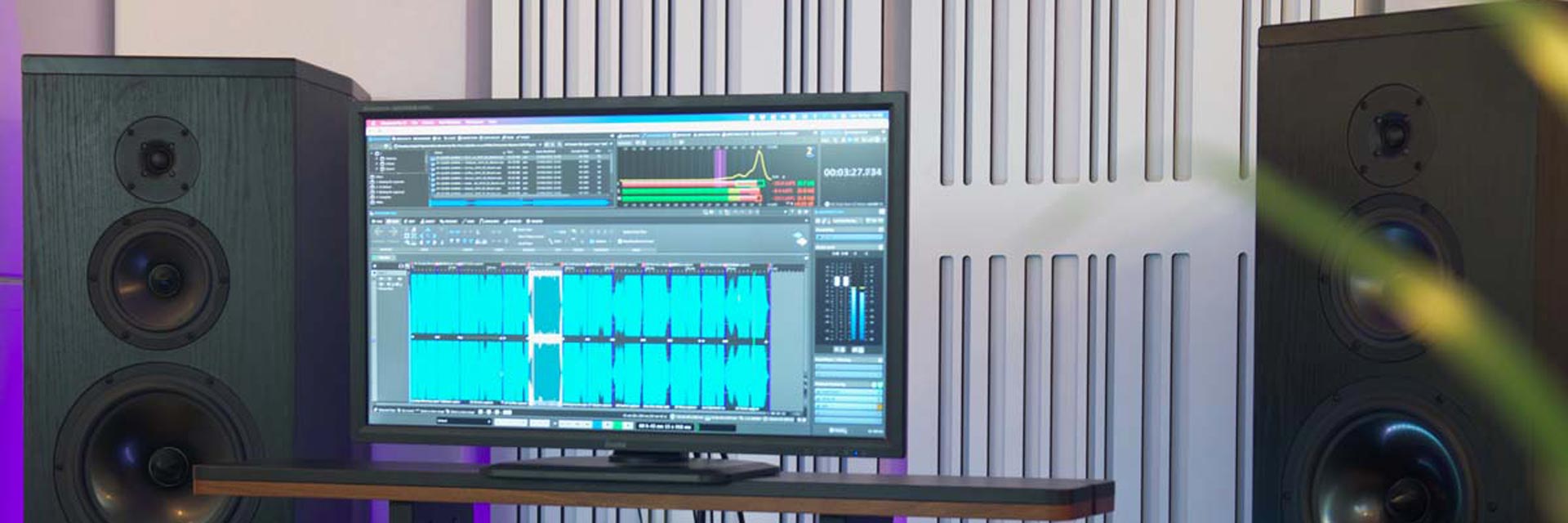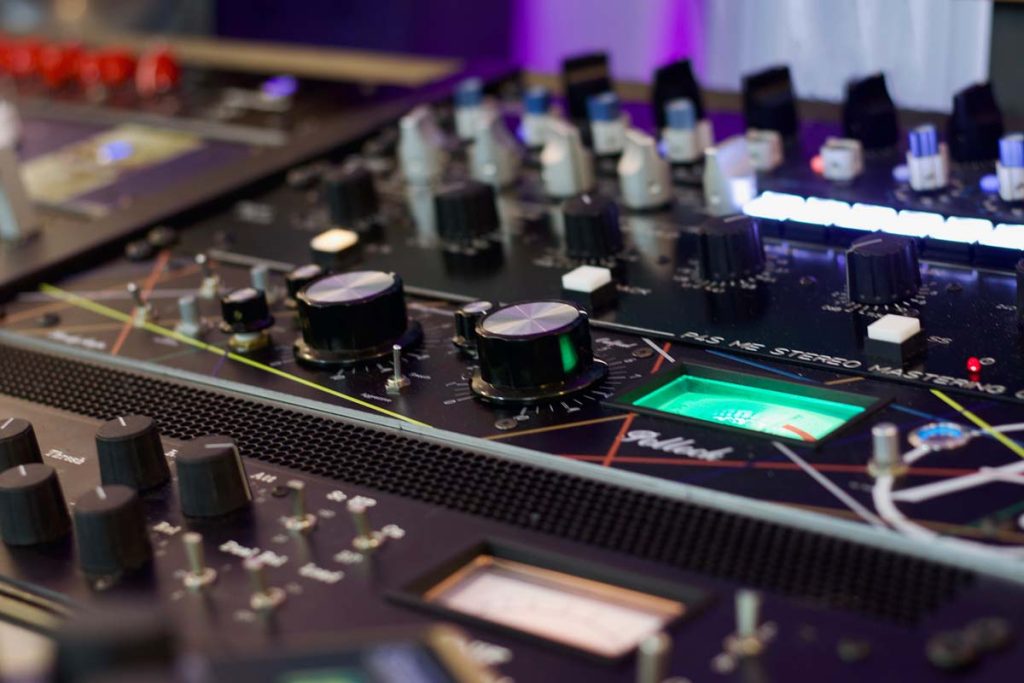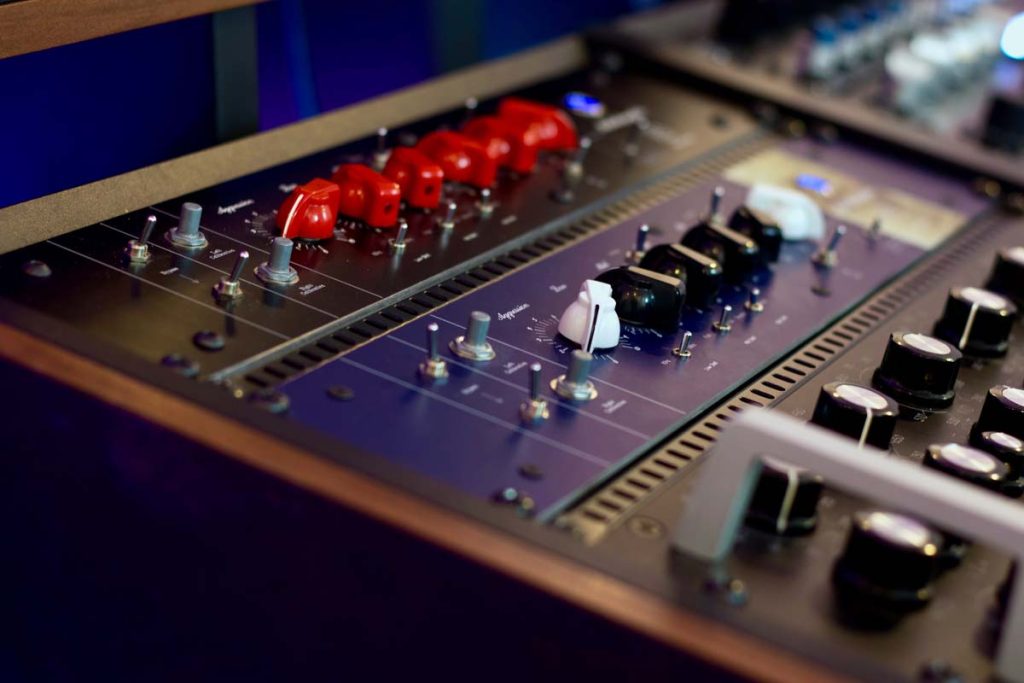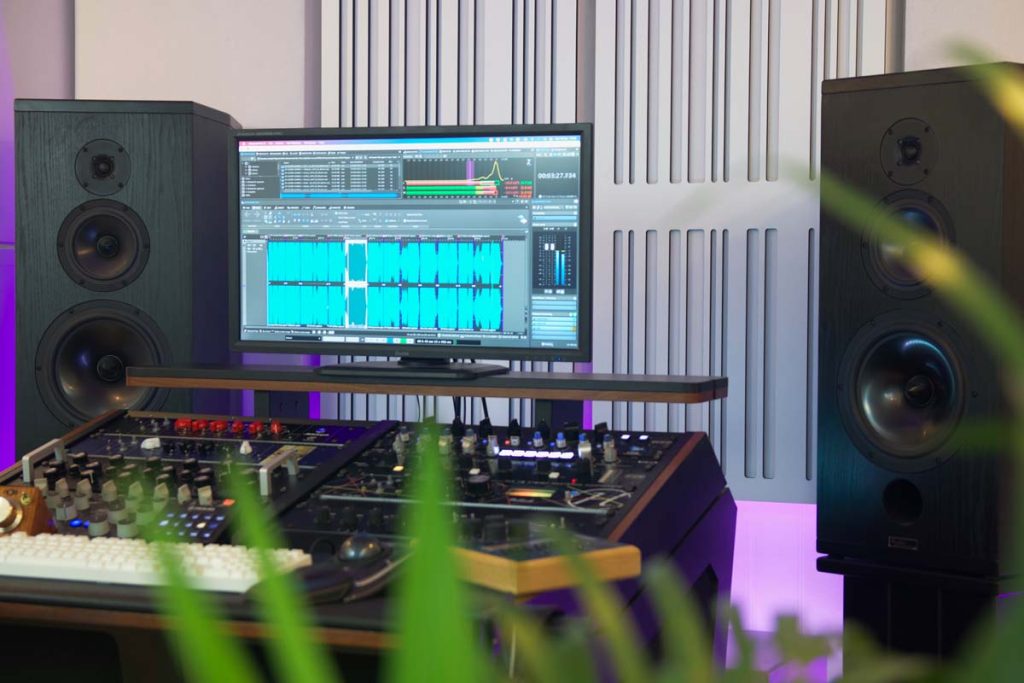Getting the best out of the mix – whether for streaming or physical media. That – in a nutshell – is mastering today.
In the early years of vinyl, it was more about making sure every record played on every turntable, and without skipping. Then in the 1990s, the so-called Loudness War showed that mastering didn’t always have only positive sides. The recordings were made louder and louder in order to assert themselves against the competition on the radio. Often this went as far as the technical feasibility of digital formats. Sound-wise, it was terribly compressed and always close to overdrive. Today, mastering is not only the technical component, but also the way to get the last bit of sound quality out of a good mix and to align the individual pieces of a record. And for some time now, there have been more and more offerings from the field of artificial intelligence for this purpose. Our author Frank Lechtenberg spoke to British mastering engineer Steve Kitch, who has been in the business for over 25 years.
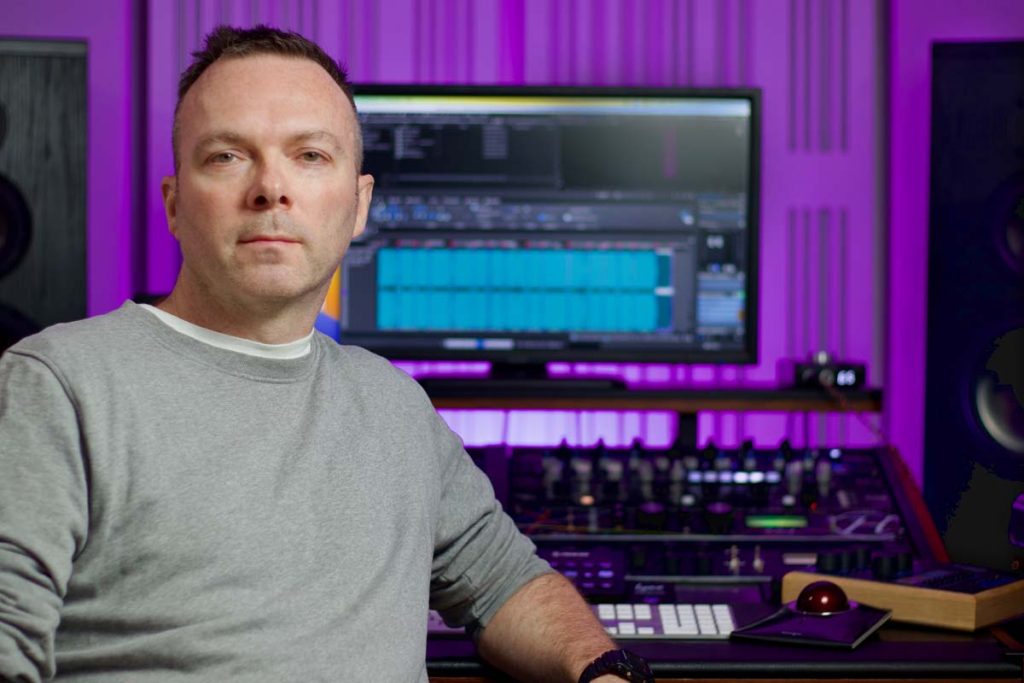
Fidelity: Steve, in the 70s and 80s, mastering was primarily about the technical aspects of getting a technically clean pressing. Today, it’s also a sonically important part of production. How do you approach a mastering job when you get a finished mix from the client?
Steve Kitch: I guess I don’t go about it like the good old days when it was more of a technical process. It was as much about physics – how much fits on one side and how to keep the needle from jumping – as it was about the sound. It was about the record just running smoothly on people’s turntables, that’s not such a big problem anymore. But you can still incorporate the basics of that time into your mastering. Ironically, with vinyl, the more dynamic the mix and mastering, the more music you got on one side. And at the same time, that made the record sound better.
The first thing I do today is sit down and listen to the music. It’s a pretty unique situation. In the production process, I’m probably the first person who gets to hear the finished recording. There’s no one else in the chain who can take that position, and I don’t take it lightly either.
So, when I sit down, turn on the speakers, I take advantage of that unique situation of being the first to hear it. I listen to my gut and think what the song could use technically, but at the same time I listen to the emotion of the piece. After that, I can start working. Then I think about what the song could use so the listener can enjoy it. Maybe a few more highs here, maybe a slight emphasis in the bass range. Maybe I need this or that equipment for it. I don’t allow myself more than half an hour for editing. If I don’t hit the spot by that time, I feel it’s better to start over again. It’s a fluid process, you work on a few things, then let it sink in again. That’s how I approach it.
Today, a lot of people are talking about artificial intelligence, which has arrived in mastering a long time ago. There are programs like Izotope or online mastering studios that work with AI. From your point of view, what is the reason to still choose a human mastering engineer?
There are several reasons. I hope and I think in the end it’s the ear and the experience that a proper mastering engineer brings to the table that’s been doing this for 10 or 20 years. I’ve been doing it for more than 20 years and there you have a lot of experience from different genres, styles and also through different demands and target formats. I don’t think an AI can do that fundamentally well. I mean, you can feed the algorithm, but what comes out of it is not the same. I sit down and listen to it, work out what the piece needs. And there’s also the equipment, a whole bunch of which is behind me right now. I don’t think it’s possible to emulate something like that. Computers and digital plug-ins are getting better and better, but what they’re missing is still the last 5 or 10 percent that analog gear can give you. And it will stay that way! I’ve been learning for 20 years and it’s still going on. Formats are changing, people’s sound ideas are changing, new genres are constantly emerging. I have to be on top of that all the time, and a good mastering engineer can give you a second opinion on a mix sometimes. That’s what I do when I think it’s useful. And from that, even friendships develop when you work with songwriters or producers for months or even years. You know what the other person would like, and you just can’t get that elsewhere. That’s Music, isn’t it?
At Fidelity, we write about hi-fi and high end, about sometimes very expensive systems and also for people who are very good listeners. When you think about high-end playback chains and music lovers, does that influence your work?
We’re in a similar position there. I mean, my speakers here are hi-fi speakers. A lot of mastering engineers work with hi-fi speakers. I also have an expensive amplifier. But I’m not sitting in a listening chair with a whisky and relaxing, I’m working. But just in a similar listening situation. I also think about how the music will sound through headphones at the bus stop. At the same time, I think about how it will sound on an expensive HiFi system, because the cheap earphones will hardly reveal the details and shortcomings of the recording. If a guy sits in front of 20,000 € speakers, he’ll hear everything, every half dB tweak at 10 kHz. So yeah, I definitely try to master with an affinity for hi-fi. For me, it always has to sound good on a good stereo system first, and only then on mobile headphones. That’s just how my ears work and I don’t want to compromise on sound quality.
Is there a piece of yours or others that you can recommend sonically for our Fidelity playlist?
When I come out of the studio I try to listen to as much music as possible. More for my own entertainment than to overanalyze it with all the different aspects of mastering and who did it. But when it comes to things that I’ve done, it’s about my own band The Pineapple Thief, whose last album “Versions of the Truth” I mastered. I’m pretty happy with that. For two reasons: Bruce Soord recorded and mixed it very well, and I mastered it. Our drummer Gavin Harrison, however, while not anti-mastering, pays very close attention to how mastering affects his drum sound. His drum sound is his sound of the last 20-30 years: very detailed, with lots of little transients, and he wants to preserve those completely. And so he’s constantly forcing me to just not tighten it up too much. If I add an extra dB, I immediately have him on the phone and he tells me to undo it immediately. The result, however, is a very detailed sound, very open and dynamic. That’s a good thing! When it comes to music by others, there was a Toto album that came out a few years ago. It had their back catalog on it, which was remastered again. In the ’80s and ’90s, the back catalog was remastered too, but that was about being in the Loudness War and that’s when they decided enough is enough. Let’s make a definitive album, with all our great songs. So the best recordings with the best mastering. I actually have it sitting here, yes, Toto 40 Trips around the Sun. I think Toto are my “gulity pleasures.” They are obviously fantastic musicians and the album is a good example of a rock album that just wasn’t compressed. It sounds really good, especially on vinyl.
Is vinyl also an issue for you in your private life?
I do a lot of vinyl masters. I like the way the format forces you to not do the loudness craze, as well as the physical and romantic aspects of the record. I mean, there are definitely limitations, I wouldn’t deny that. But there’s something very special, unique, that’s hard to describe. As an audio purist, I would happily have a debate about whether it sounds even better in other formats, but I would never deny that it’s a very special format.
Thank you very much for your time.

